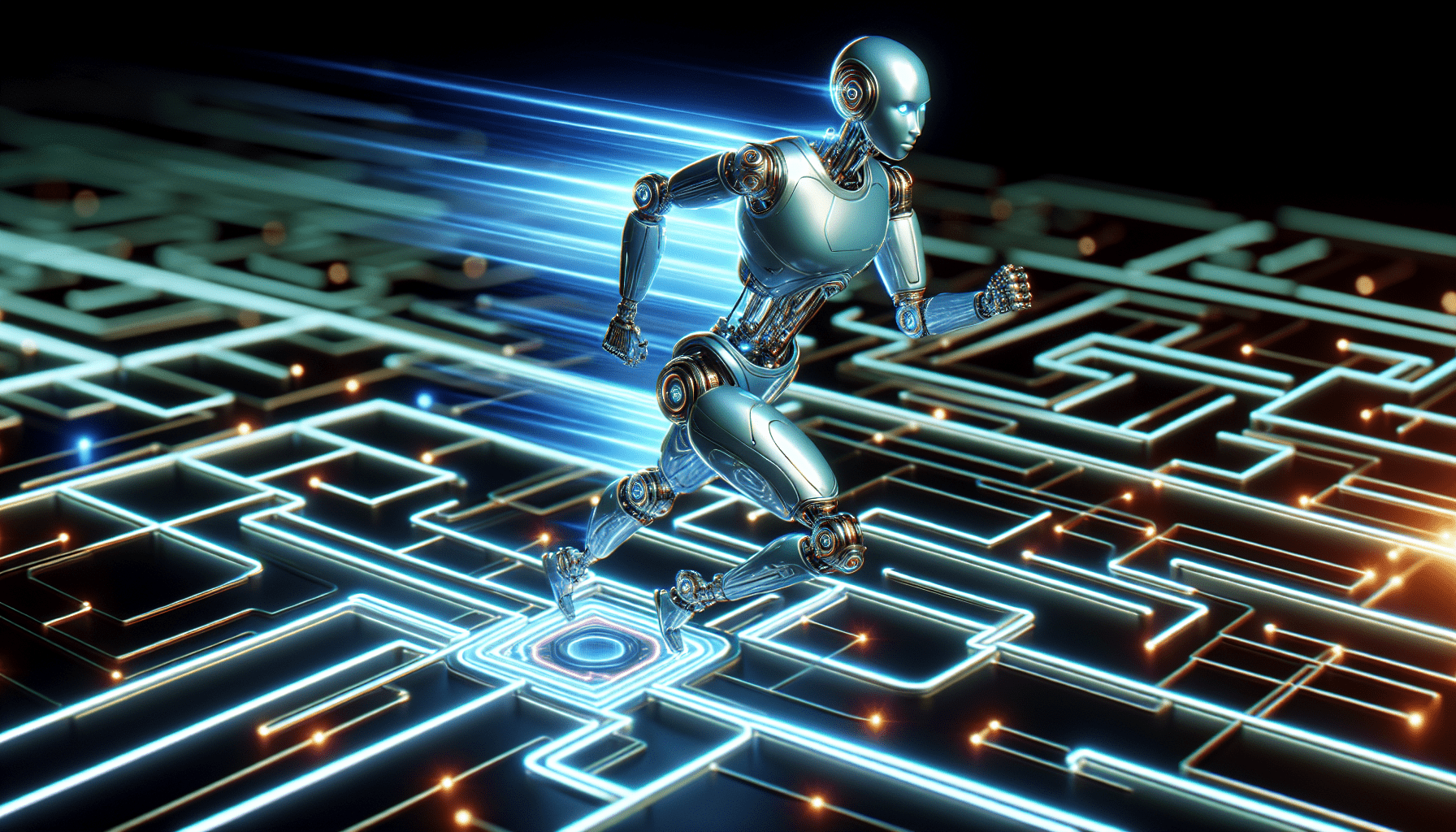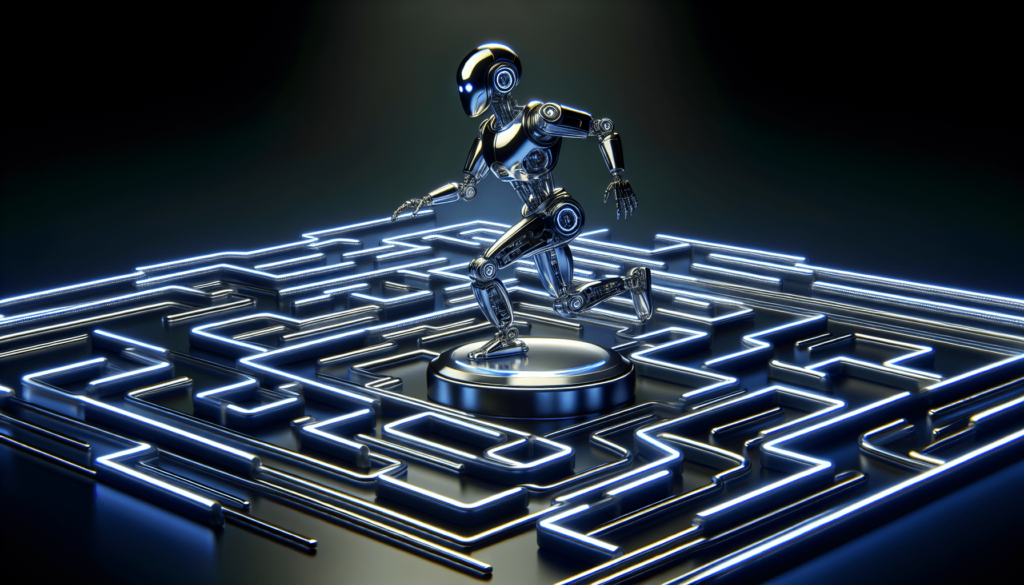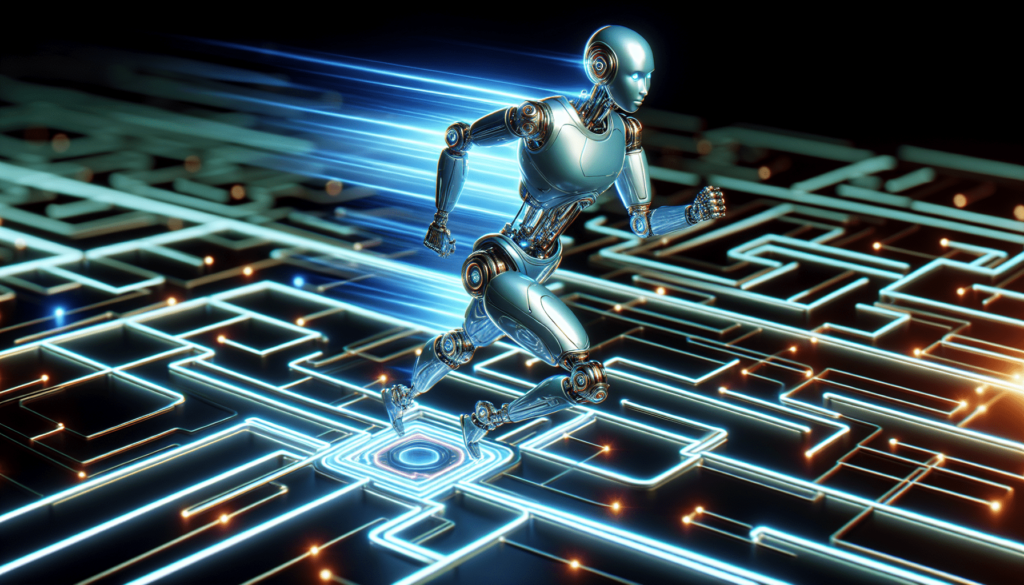
Imagine a world where artificial intelligence (AI) is seamlessly integrated into our daily lives, enhancing our experiences and making tasks more efficient. “Navigating the Future: Insights into the AI Landscape” is an article that explores the current state and potential future of AI. In this captivating article, you will gain valuable insights from experts at V Circle Sdn Bhd, learning about the latest developments in AI and how it is shaping various industries. With a friendly tone and engaging content, this article aims to pique your interest and encourage you to dive deeper into the fascinating world of AI.
The Rise of AI
Artificial Intelligence (AI) has made remarkable progress in recent years, revolutionizing industries and transforming the way we live and work. By replicating human intelligence and performing tasks that typically require human intervention, AI has become an invaluable tool in various fields. In this article, we will explore the different aspects of AI, its impact on industries, its potential for growth, and the challenges it faces.

Understanding AI
AI refers to the development of computer systems that can perform tasks that would normally require human intelligence. These tasks include speech recognition, decision-making, problem-solving, and learning. AI systems are designed to simulate human thinking, enabling them to process vast amounts of data, analyze patterns, and make informed decisions.
The two main types of AI are Narrow AI and General AI. Narrow AI is designed to perform specific tasks, such as voice assistants like Siri or chatbots for customer service. On the other hand, General AI aims to replicate human intelligence and perform tasks across various domains. While General AI is still largely theoretical, Narrow AI has already made significant strides in everyday life.
AI’s Impact on Industries
AI has the potential to reshape numerous industries, enhancing efficiency, productivity, and innovation. Let’s explore a few key sectors and how AI is transforming them.
AI in Healthcare
In the healthcare sector, AI is being used to improve patient care, diagnose diseases, and develop personalized treatment plans. AI-powered algorithms can analyze medical records, genetic data, and symptoms to provide accurate diagnoses and suggest appropriate treatment options. Additionally, AI can facilitate telemedicine and enable remote patient monitoring, ensuring accessible healthcare services worldwide.
AI in Finance
The finance industry is leveraging AI for tasks such as fraud detection, risk assessment, and algorithmic trading. AI-powered chatbots and virtual assistants are enhancing customer service by providing real-time support and personalized financial advice. Moreover, AI’s ability to process massive amounts of data enables more accurate market predictions and enhances investment strategies.
AI in Manufacturing
AI is revolutionizing the manufacturing industry by automating processes, improving product quality, and optimizing supply chains. Intelligent robots and drones are replacing manual labor, increasing efficiency and reducing production costs. AI-powered predictive maintenance systems detect faults in machinery, preventing breakdowns and optimizing production schedules. This integration of AI into manufacturing processes is leading to higher productivity and improved profitability.
AI in Transportation
The transportation industry is embracing AI to enhance safety, optimize logistics, and develop autonomous vehicles. AI-powered systems can analyze traffic patterns, optimize routes, and reduce travel time. Self-driving cars, trains, and drones are becoming a reality, aiming to make transportation more efficient and sustainable. AI is also being used in the aviation sector to improve air traffic control systems, reducing delays and enhancing safety measures.
AI in Retail
AI is transforming the retail industry by offering personalized shopping experiences, optimizing inventory management, and streamlining supply chains. AI algorithms analyze customer data, preferences, and behavior to provide tailored product recommendations and personalized advertisements. Retailers are also using AI-powered chatbots to assist customers, answer queries, and enhance customer engagement. AI’s ability to analyze consumer trends and predict demand helps retailers optimize stock levels, reduce waste, and improve profitability.
AI in Education
AI is being utilized in education to enhance adaptive learning platforms, provide personalized tutoring, and facilitate efficient administrative tasks. Intelligent tutoring systems use AI algorithms to adapt content and learning experiences based on individual student needs. AI-powered chatbots serve as virtual assistants, answering student queries and providing 24/7 support. Additionally, AI can automate administrative tasks such as grading, scheduling, and data analysis, allowing educators to focus more on teaching.
AI in Entertainment
AI is reshaping the entertainment industry by offering personalized content recommendations, enhancing content creation, and improving user experiences. Streaming platforms like Netflix and Spotify use AI algorithms to analyze user preferences and behavior, suggesting tailored content suited to individual tastes. AI-powered tools are also being used to generate computer-generated imagery (CGI) and special effects, revolutionizing the film and gaming industries.
AI in Customer Service
AI-powered chatbots and virtual assistants are becoming increasingly prevalent in customer service. These intelligent systems can provide instant responses to customer queries, personalize interactions, and help resolve issues efficiently. AI-powered sentiment analysis tools can analyze customer feedback and sentiment, allowing companies to identify areas for improvement and tailor their products and services to customer preferences.
AI in Agriculture
The agricultural sector is benefiting from AI by optimizing crop management, improving yield prediction, and enhancing sustainability. AI-powered systems analyze soil conditions, weather patterns, and crop data to optimize irrigation, fertilizer usage, and pest control. This information helps farmers make data-driven decisions, increase productivity, and reduce environmental impact. AI-powered drones and robots are also being used for tasks such as planting, monitoring crop health, and harvesting, reducing manual labor and increasing efficiency.
AI in Energy
AI is being used in the energy sector to optimize energy consumption, improve renewable energy integration, and enhance grid management. AI-powered algorithms analyze energy usage patterns, weather data, and building conditions to optimize energy efficiency and reduce carbon footprints. Smart grids, equipped with AI systems, can dynamically adjust energy supply and demand, ensuring stable and sustainable energy distribution. AI is also being utilized in the development of renewable energy technologies, improving their efficiency and reliability.

AI’s Potential for Growth
The potential for AI’s growth is vast, with numerous opportunities to revolutionize existing systems and create new ones. The following areas illustrate AI’s potential for further expansion and innovation.
AI and Big Data
AI’s ability to process and analyze vast amounts of data opens up opportunities for advancements in areas such as healthcare, finance, and marketing. By leveraging AI algorithms and big data analytics, organizations can gain valuable insights that drive decision-making and improve outcomes.
AI and Internet of Things (IoT)
AI and IoT integration hold the potential to transform the way we interact with everyday objects and devices. AI-powered smart homes and cities can optimize energy usage, enhance security, and improve quality of life. AI algorithms can also analyze IoT data to predict and prevent failures in connected devices and infrastructure.
AI and Augmented Reality/Virtual Reality (AR/VR)
AI can enhance AR/VR experiences by improving object recognition, tracking, and interaction. AI algorithms can analyze real-time data from AR/VR devices, enabling more realistic simulations and personalized experiences. This integration of AI and AR/VR has the potential to revolutionize industries such as gaming, education, healthcare, and manufacturing.
AI and Blockchain
Blockchain technology, known for its decentralized and secure nature, can be combined with AI to create innovative solutions. AI algorithms can analyze blockchain data, improve security measures, and provide valuable insights for decision-making. This combination has the potential to transform sectors such as finance, supply chain management, and cybersecurity.
AI and Robotics
AI-powered robotics is an exciting field with endless possibilities. From autonomous drones and vehicles to intelligent robots in healthcare, manufacturing, and exploration, AI and robotics can enhance efficiency, productivity, and safety in various industries.
AI and Natural Language Processing (NLP)
NLP refers to AI’s ability to understand, interpret, and interact with human language. AI-powered voice assistants like Amazon’s Alexa and Apple’s Siri utilize NLP to understand user commands and provide relevant information. NLP has the potential to revolutionize communication, customer service, and language translation.
In conclusion, AI’s rise has the potential to revolutionize industries, transform the job market, and reshape our daily lives. While there are challenges to address, such as ethical considerations and workforce displacement, the opportunities and potential for growth are immense. As AI continues to advance, collaboration between humans and AI will be crucial in maximizing its benefits and ensuring responsible and ethical use. With careful regulation and governance, AI can pave the way for transformative innovation and a brighter future.



Comments are disabled